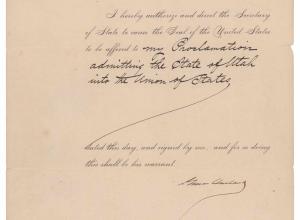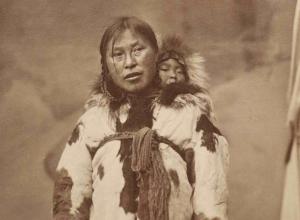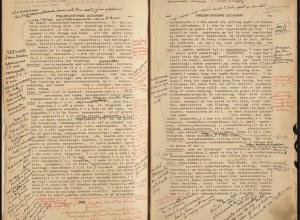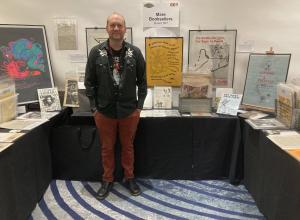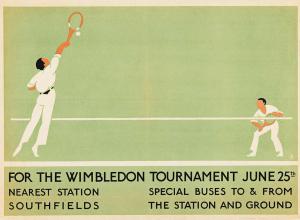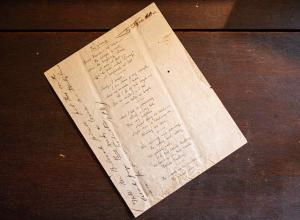In 2012 Fine Books interviewed Brooke Palmieri as a Bright Young Thing (renamed Bright Young Booksellers) and since then she has gone on to work for many rare book businesses, earned a PhD, and has just this week launched a unique rare books company. I decided to catch up with her and ask her to bring us up to date on all the bright young things she's doing, and her responses offer an enriching and unique perspective on the art and practice of buying and selling rare books. Camp Books mailing list can be found here.
What is Camp Books and how did it come to fruition?
In simple terms: Camp Books is my attempt at making a living by selling books. More expansively: I have worked with, around, and through books my whole life, and Camp Books is a way of drawing together all of the strands of that life and life's worth of work into one place.
Camp Books is a product of my sensitivity toward books as rich, complicated objects, and I draw from an old old profession--bookselling--in an attempt to enhance people's awareness of and engagement with history in these terms. I don't believe it's possible to simply read a book: there's always something much more transformative happening, an engagement with voices past and present. And equally I don't believe it's possible to simply sell a book: the materials that comprise the book, the hands that laboured to make it, and the ways in which it survives and moves across time all add to its meaning in a way that resists any kind of straightforward transaction. As someone who has worked with books as a librarian, researcher, teacher, bookseller, and above all, reader, publishing catalogues of books for sale is just a starting point for me to promote the many different kinds of interactions that it's possible to have with a text. For that reason, I wanted to circulate something of a "manifesto" of my thinking behind the business before trying to make any money from it.
I think you could--and should--take this approach towards any kind of heritage, but the name I chose matters: it's Camp as in the way queer people are often described as behaving, it's Camp as in "too much," it's Camp as in Susan Sontag's "Notes on Camp" (1964):
55. Camp taste is, above all, a mode of enjoyment, of appreciation - not judgment. Camp is generous. It wants to enjoy. It only seems like malice, cynicism. (Or, if it is cynicism, it's not a ruthless but a sweet cynicism.) Camp taste doesn't propose that it is in bad taste to be serious; it doesn't sneer at someone who succeeds in being seriously dramatic. What it does is to find the success in certain passionate failures.
56. Camp taste is a kind of love, love for human nature. It relishes, rather than judges, the little triumphs and awkward intensities of "character." . . . Camp taste identifies with what it is enjoying. People who share this sensibility are not laughing at the thing they label as "a camp," they're enjoying it. Camp is a tender feeling.
Camp Books' specialty is--in other words--all things related to LGBTQ+ history, and all things I spy with my own queer eye and find to be camp. It's a focus that allows me to span the centuries in exactly the way I like: gender nonconformity survives in so many printed books, the word queer is just about as old as moveable type, there are worlds of possibility to pursue. Although the history of queer people is shot through with so much brutality and oppression, and I am not afraid of handling these materials, in the end it was "Camp Books" because I do want to remind myself to balance the righteous anger I have with enjoyment, and tender feelings. As a writer and bookseller part of my ethic of preserving and selling works that are cites of activism--and are sometimes practically humming with the emotions of the people who've made them and the places they've been--is to try to catalogue in circulate them in ways that are nourishing. With Camp Books I want to support a sense of community as well as give people a sense of communing with the past.
You were featured as a Bright Young Thing in Fine Books in 2012. What have you been up to since that interview leading to the launch of Camp Books.
Working! For much of the time on a PhD in the History Department at University College London, "Compelling Reading: The Circulation of Quaker Texts 1650-1700," which was a wonderful chance at digging really deep into the history of radical ideas, and understanding how minorities archive their experiences. The Quakers were shockingly persecuted in the early decades of their establishment, and they communally wrote, edited, funded, and circulated works describing their experiences of persecution as well as their ideas. They wrote about gender equality, abolition, and pacifism, and the legacy of their practices has survived for over three centuries and continued: the same committee that oversaw the publication of pacifist tracts in the 1660s oversaw the publication of pro-LGBT pamphlets in the 1960s. Incredible to write about, and incredible to teach to students, which I was able to do during my time at UCL both with undergraduates and masters, as wells as secondary school students through a charity called The Brilliant Club, which focuses on promoting access to higher education.
I was also fortunate enough to work for a few years at Treadwell's Books in Bloomsbury. Its owner, Dr. Christina Oakley-Harrington, is an incredible source of kindness, knowledge, and mentorship. Christina has been running Treadwell's for 13 years and it's a site of pilgrimage. I can honestly say there was not a day I worked there that people didn't come from far and wide with the explanation that Treadwell's was a place they'd long dreamed of visiting. So it's a magical place in that way, and in its specialty, which is books on witchcraft, the occult, folklore, and all things esoterica. I received an incredible education in secondhand and rare books printed in those fields. Misanthropic models of bookselling be damned: at Treadwell's we warmly welcomed everyone no matter what, and I enjoyed working with my colleagues to maintain the bookshop as a hub of community, and learned the practicalities of what it means to be inclusive.
As the editor of Printing History, a peer reviewed academic journal published by the American Printing History Association, what has been your favorite part of helming the publication?
Printing History has been a wonderful exercise in collaboration--I'm not just a historian of collaborative printing practices, I really do it with Michael Russem and Katherine Ruffin and each contributor! I think my favorite element beyond working with a good group of people is the landscaping: Printing History is a platform for the latest scholarship to do with printing technology and that allows me the space to really change who can be represented in weighing in on that topic. Just as Camp Books is my personal effort to alter the way people read and collect, Printing History is a chance to let others do that through their writing and scholarship. We have had a wonderful array of contributions--on everything from the typography of ouija boards to the risograph studio run here in London by the OOMK collective--and have also implemented features like interviews and roundtable discussions to try to capture some of the knowledge and expertise of those who don't want to write in the medium of the academic article. We use the publication to foster the community of members, which is worth joining if you're interested in printing, publishing, or allied crafts.
Do you have a personal collection? What's the last book you bought for it?
Friends' books, these most recent two purchases I have bought also relating more broadly to my own 'contemporary queer small press', although were bought in multiple copies to give as gifts, so lovely are they: Metabolize, if Able, by Clay Ad,
The new artists' edition of Two Augusts in a Row in a Row, by Shelley Marlow.
I'm working backward: My personal library has always been varied and I suppose someday I'll be able to trace all of the branches back to a trunk and some roots...for now I just buy books that nourish my curiosity about whatever.





